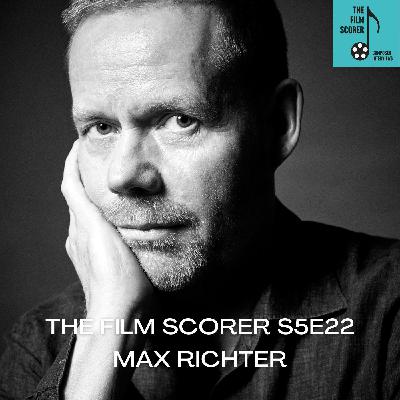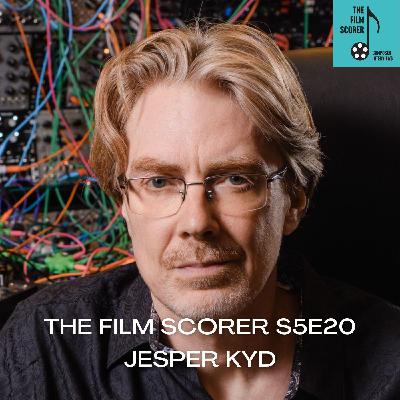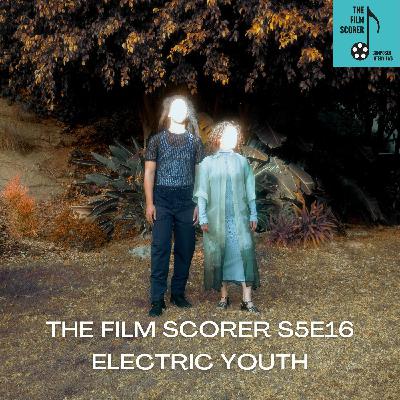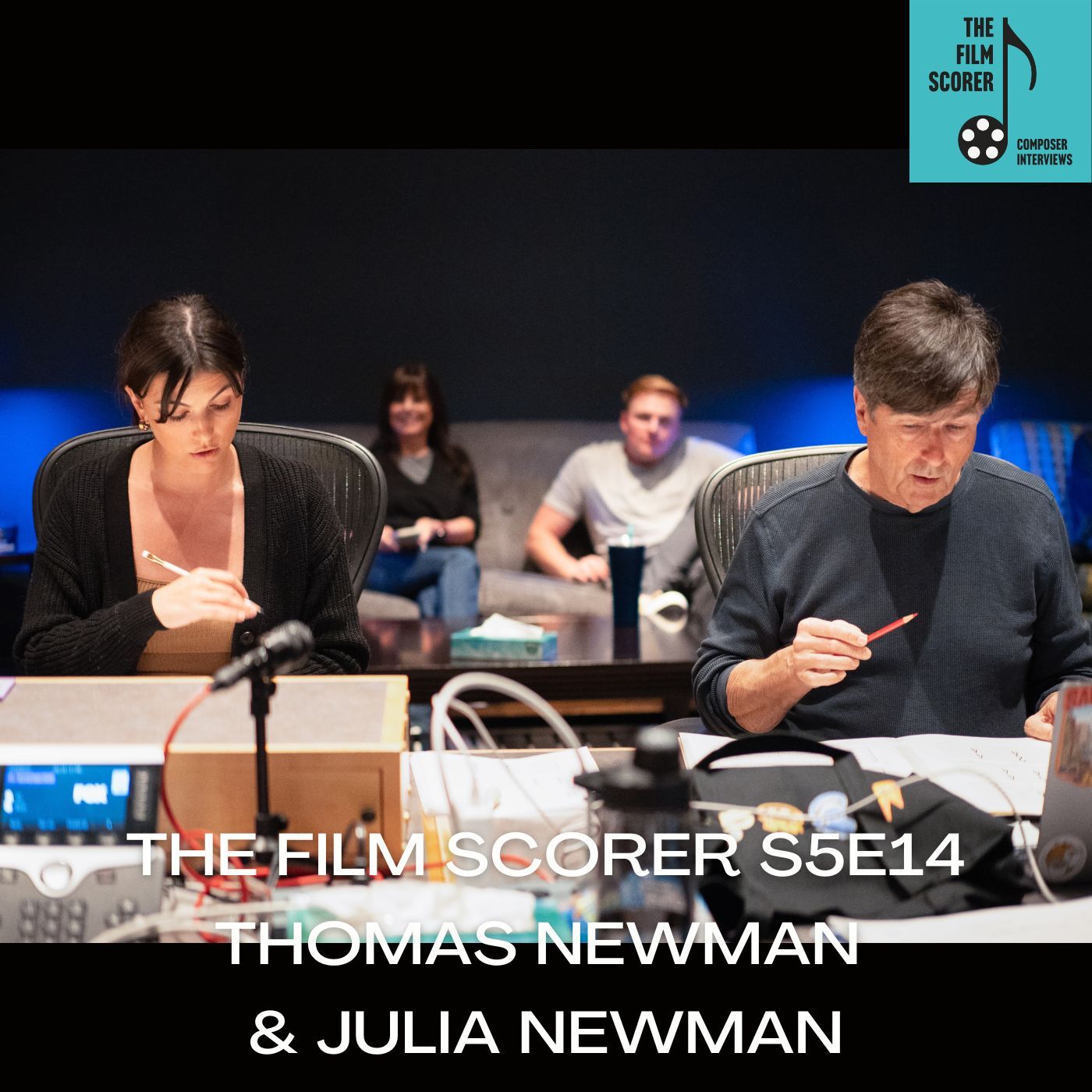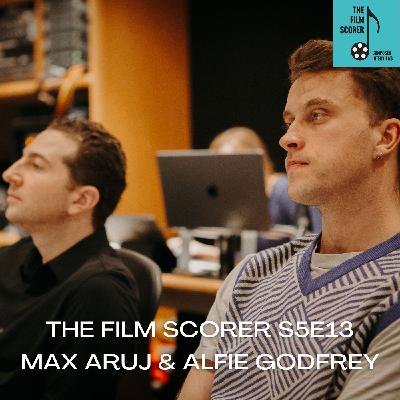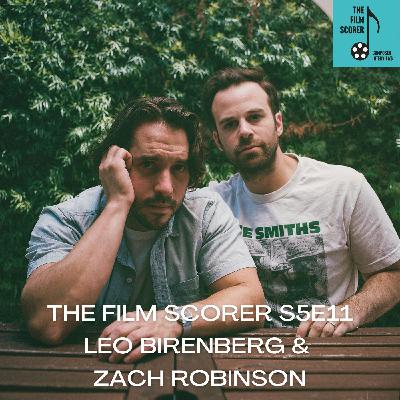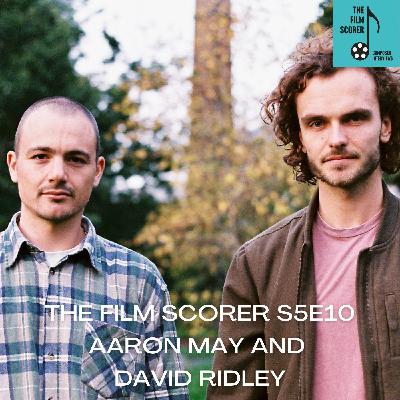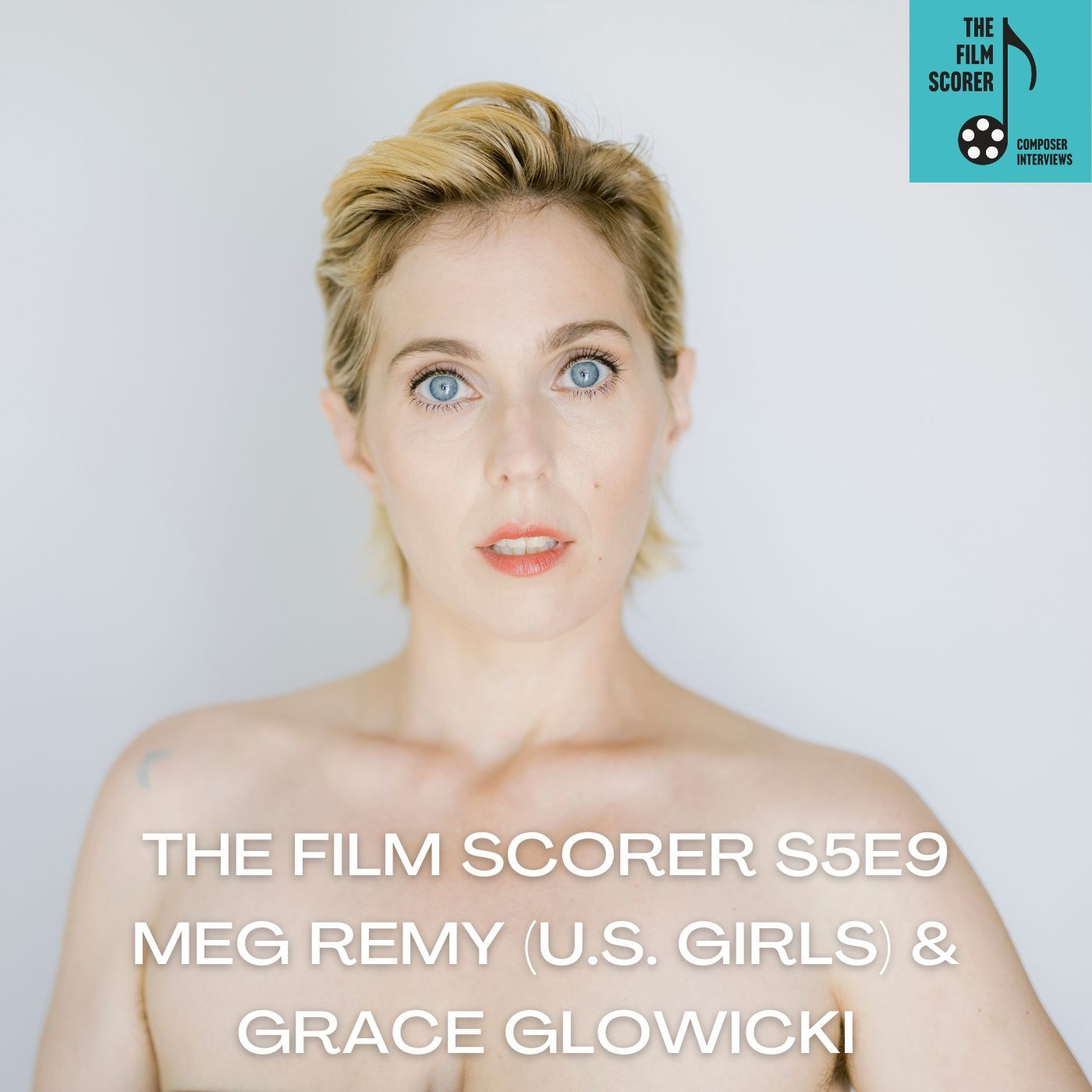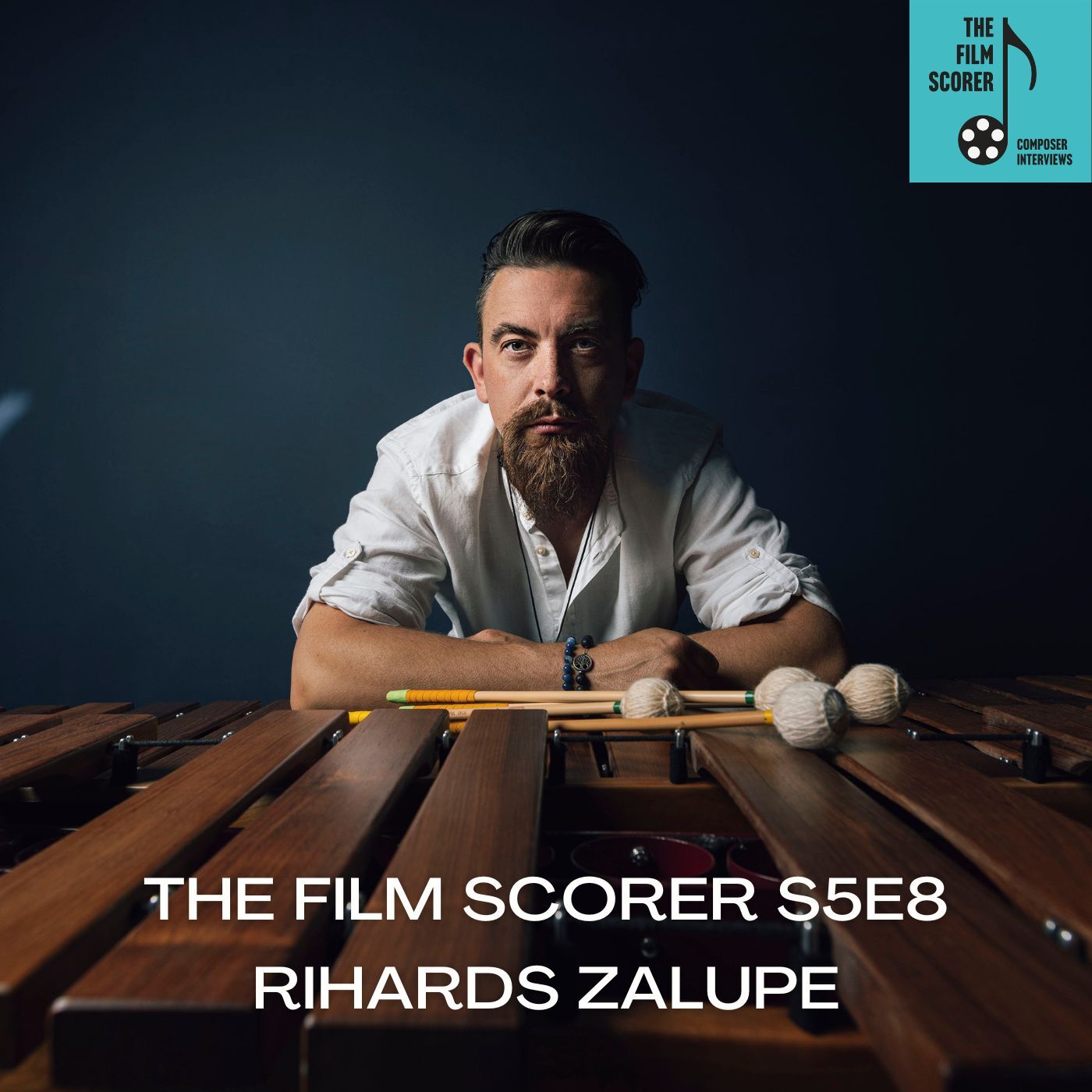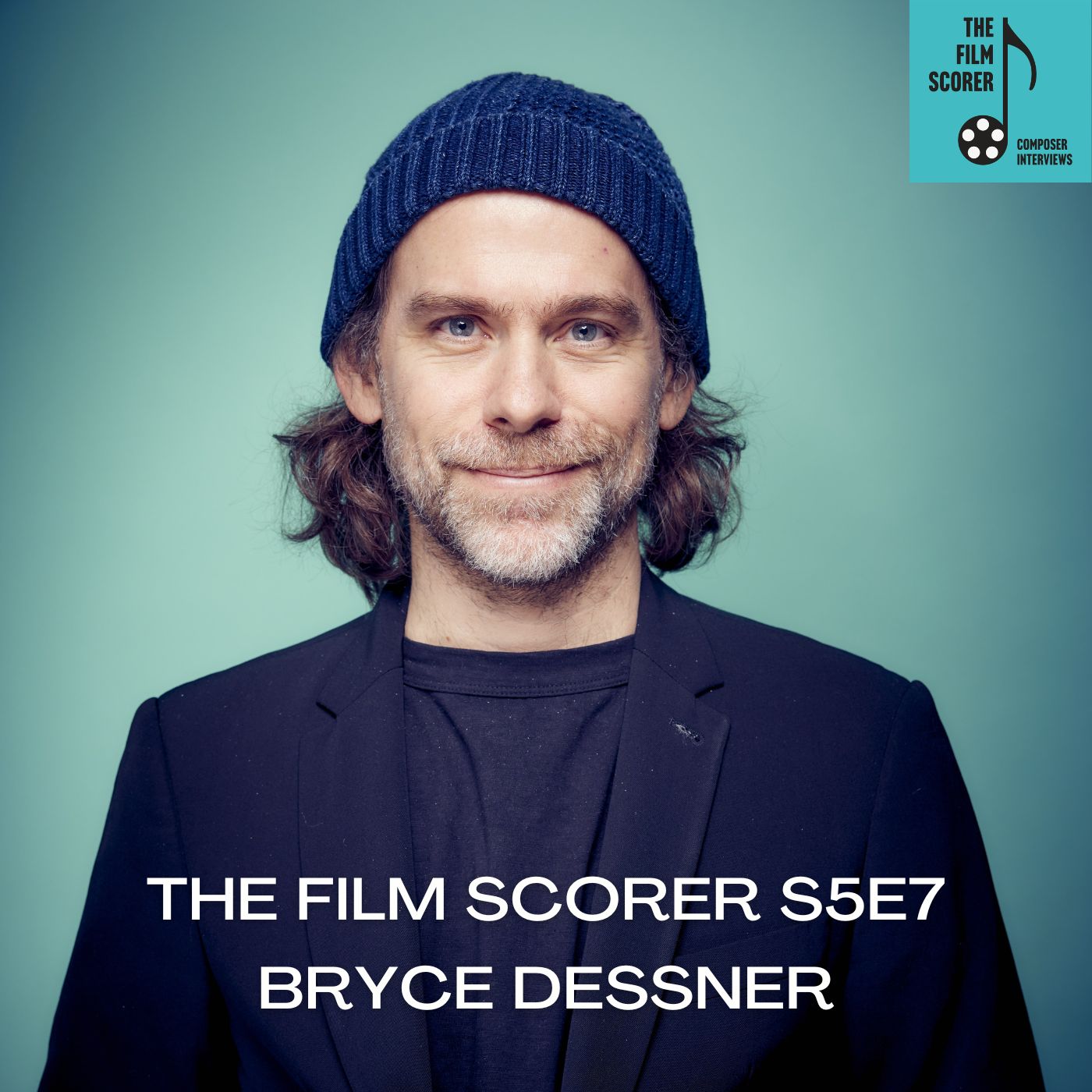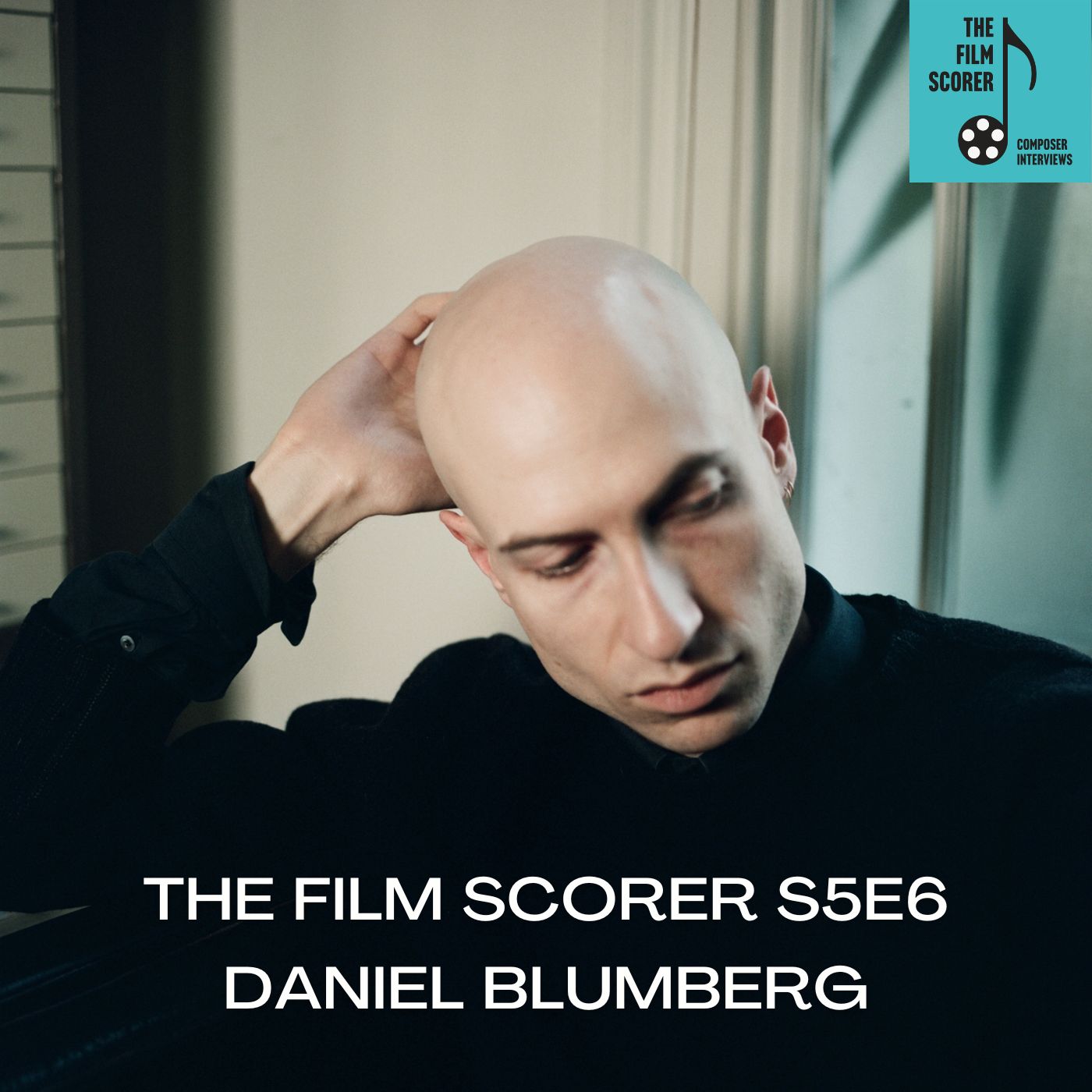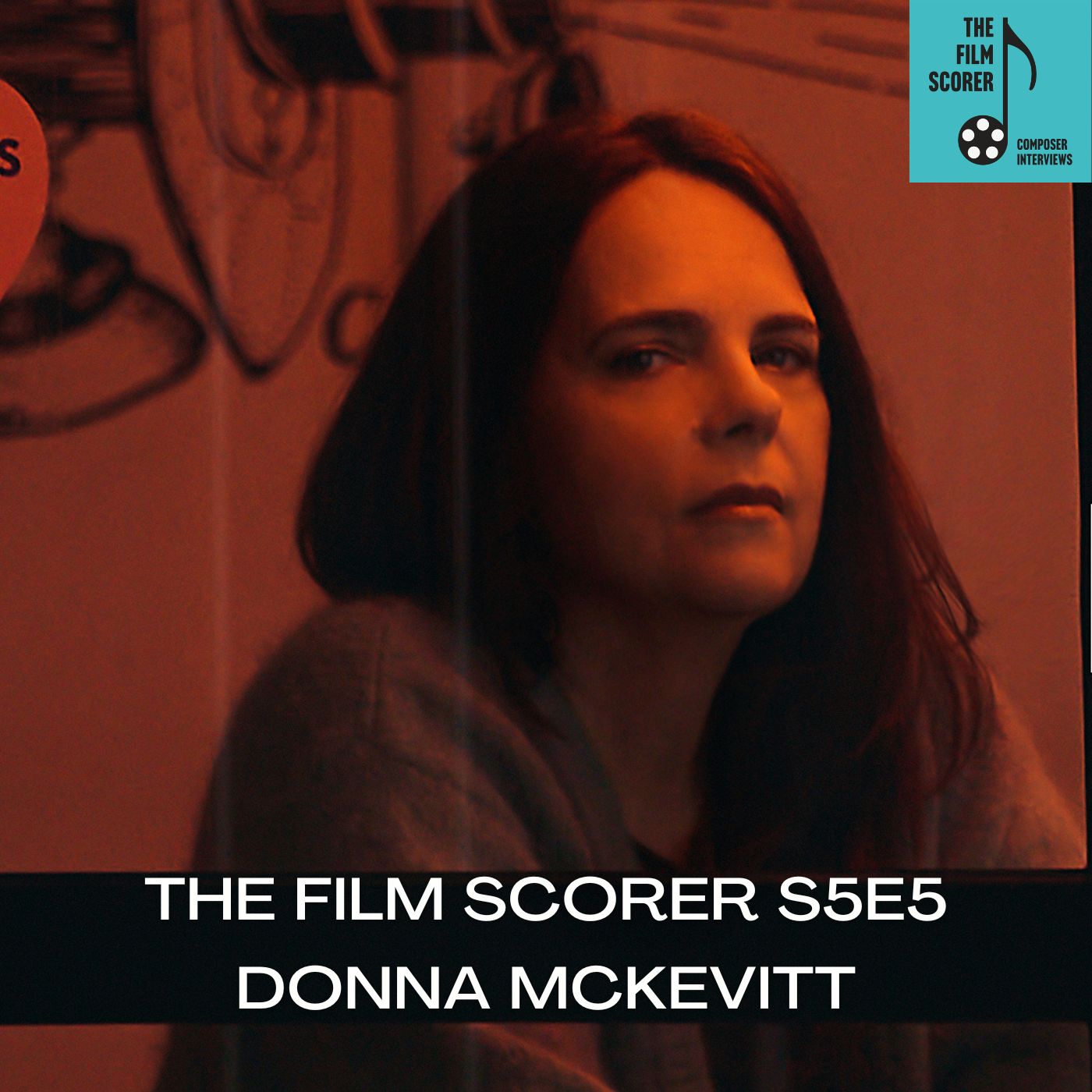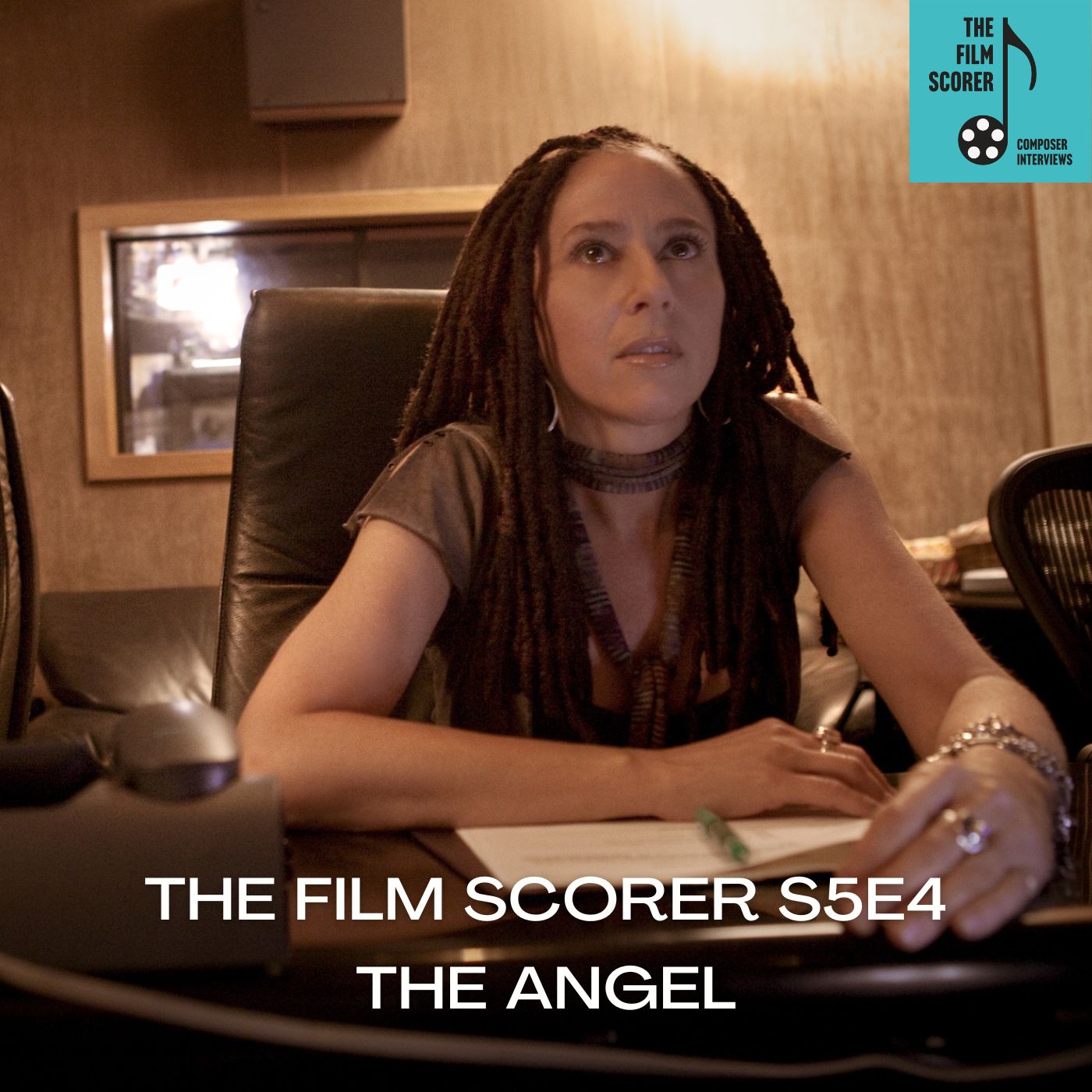Discover The Film Scorer
The Film Scorer

The Film Scorer
Author: Nicholas Marcus
Subscribed: 20Played: 480Subscribe
Share
© Copyright 2020 All rights reserved.
Description
The Film Scorer Podcast features a wide array of long-form interviews with film composers, including up-and-comers, established veterans, and everybody in between.
Hear first-hand from masters of the craft about the film scoring process, see behind-the-scenes, and learn all about the art of film and film music.
Hear first-hand from masters of the craft about the film scoring process, see behind-the-scenes, and learn all about the art of film and film music.
142 Episodes
Reverse
The end is here! Well, the end of season 5 at least. That's right, after over twelve months the season is finally over (making it, I think, the longest season of The Film Scorer yet), and what better wait to celebrate than to chat with Max Richter?
Max's (Ad Astra, The Leftovers) latest (Oscar nominated) score is for the incredible historical drama Hamnet, a fictionalized account of the death of William Shakespeare and his wife Agnes's son Hamnet and how it inspired the creation of Hamlet. Unsurprisingly, we spend most of our conversation on Hamnet, but despite the quick interview we manage to cover a lot of other ground too, such as the use of "On the Nature of Daylight" over the years, the troubled production of Ad Astra, and how a musician's intent goes only so far once their music reaches an audience.
Max's score for Hamnet is forthcoming (though having heard an advance version, I can vouch that it's great) and the rest of his music is available on all major platforms. You can find out more about Max on his website. In addition to Hamnet's pending release, Max just announced some 2026 tour dates.
There are a few perks to running every aspect of this site and podcast, the biggest being picking who I want to interview (and avoiding whomever I don't). Part of that, sometimes, is using film music as an excuse to interview bands that I just broadly like. Enter: Chat Pile. The Oklahoma noise rock band has one score under their belt, the 2022 indie crime flick Tenkiller, which they released as a score album after their debut God's Country, and have provided some songs for other films, most recently a track for the end credits to V/H/S/Halloween. Not to mention, they routinely talk about movies, including during their gigs. All perfect hooks to have them on, and so today I'm talking with vocalist Raygun Busch and guitarist Luther Manhole.
As such, we jump around quite a bit: from their experience scoring Tenkiller, how movies brought them together and provide a mutual love, and some recent (and not to recent) scores that they've enjoyed (I'll note that at one point Ray is talking about the Bossa Nova score for Black Orpheus before getting interrupted by his dog...). We wrap up on a bit of a detour, actually talking about the economics of albums and touring, and how much a role cost of living plays into that.
Chat Pile's music is available on all major platforms, chief among them being Bandcamp, or you can seek out their music physically. You can find out more about Chat Pile on their website and they have a new album on the horizon, In The Earth Again which they've co-written with Hayden Pedigo, coming out October 31st.
Although this podcast is called "The Film Scorer", every so often it's nice to chat with someone who does significant work in another medium instead. Today, that someone is Jesper Kyd (Hitman, Assassin's Creed). Jesper has been scoring for games for over thirty years, working on some of the biggest video game franchises around. But he's also worked on a number of films (like the Indian films Tumbbad and Crazxy), leading to the best answer I've ever gotten to the question "what's the difference between scoring for video games and movies?"
Jesper's latest score is for Warhammer 40,000: Darktide. In fact, Jesper has been scoring this game for years - it first came out in November 2022, and with new maps, characters, events, and other updates he keeps writing new music for it. The result is four separate releases, the latest of which was just in August of this year, about 25 minutes of dark industrial electronic music for running and gunning. I must have spent a dozen hours listening to those releases getting ready for this interview, and let me tell you: I was ready to join the 40th millennia's endless war.
Jesper's score for Warhammer 40,000: Darktide (Volumes 1-4), and much of his other music, is available on all major platforms. You can find out more about Jeremiah on his website.
I know I keep saying that the end of this season is imminent. And it is, but it seems like every time I think it's about dead it springs back to life for a little while longer. Reviving it this week is Jeremiah Fraites. Jeremiah is going to be best known as being one of the founding members of the hit alternative folk band The Lumineers, but lately he's expanded his horizons a bit. Specifically, Jeremiah has scored two films this fall: the Stephen King-based The Long Walk and the biopic Springsteen: Deliver Me from Nowhere. We spend most of our time talking about both scores, particularly The Long Walk (since Deliver Me from Nowhere isn't out yet), and of course that becomes a jumping off point for the conversation. We also cover things like how film has expanded music (including visualizing music as you write), getting his wife involved in the scoring process, the differences between writing original score and original songs for films (The Lumineers wrote some songs for The Hunger Games), and plenty more.
Jeremiah's score for The Long Walk, and much of his other music, is available on all major platforms while The Long Walk is currently in theaters while Springsteen: Deliver Me from Nowhere hits theaters on October 24th.
Composer Jeff Danna (The Good Dinosaur, The Boondock Saints) joins me on The Film Scorer podcast just before we wrap up season 5! Oddly enough, I've listened to quite a bit of music from the Silent Hill franchise over the last 15 months or so, and it turns out that Jeff "scored" the two film adaptations from earlier in the 2000s (I used "scored" in quotes because the real story is a bit more complicated than that). So of course, I used our conversation as an excuse to ask all about Silent Hill, including why the first film never got a proper score release, and he tells me about having to re-record and re-create every single musical sound from Akira Yamaoka's game scores for the films. Quite a feat.
Of course, Jeff didn't come on the show to talk about Silent Hill movies from 15-20 years ago. Instead, we spend most of our time talking about his score for the hit Netflix series The Hunting Wives. The conversation goes from creating a unique palette for east Texas (particularly through the Croatian prim), scoring sexiness (the key is not aiming for sexy music), and plenty more. Along the way, we get pretty in-depth about what makes for a good theme, when you need to cast one aside and start over, and how thematic music requires a commitment from the composer and the director; after all, the latter has to be comfortable with a a musical commitment to their characters, as character and theme become intertwined.
Jeff's score, and much of his other music, is available on all major platforms while The Hunting Wives is currently streaming on Netflix. You can find out more about Jeff on his website.
In a Film Scorer first, a repeat guest joins the show! Daniel Pemberton (the Spider-Verse films, King Arthur) comes onto the show for a second time, after chatting with me back in 2023 about his score for Spider-Man: Across The Spider-Verse. Even though we're just over halfway through the year, Daniel's already scored about a half dozen projects, so we had plenty of things to talk about. With so much to pick from, we primarily talk about his recent work on the Black Mirror episode USS Callister: Into Infinity and Eddington - two extremely different projects with very different scores. Of course, even though our chat clocks in at just under half an hour we cover plenty of other ground too, including trends in modern film scoring and a big detour into Anton Karas's score for The Third Man.
Daniel's score for Eddington and Callister, and much of his other music, is available on all major platforms. Eddington is still playing in select theaters and is available on demand while Callister is available on Netflix.
And if you haven't yet, be sure to check out our prior conversation here: https://thefilmscorer.com/an-interview-with-daniel-pemberton/
Today I'm joined by Electric Youth! Well, one half of the electronic/synth pop duo - Austin Garrick - without his co-member Bronwyn Griffin. Their latest project is the score for North of Normal, a true coming-of-age drama that jumps between timelines in a forest commune in the 70s and city life in the 80s. Some of you may think that the band's sound would be anachronistic for a film with this setting, and while that may be true, their score still fits right in. Unsurprisingly, Austin and I spend most of our conversation talking about North of Normal, but we also touch on topics like Tangerine Dream and the joy of still getting "new" score releases from them, the importance of a well-curated score release album (learned from becoming fans of the medium at a young age), avoiding being pigeonholed in film and music genres, and plenty more!
Electric Youth's score, and much of their other music, is available on all major platforms. North of Normal is currently available on demand or on Paramount+.
Carlos Rafael Rivera (The Queen's Gambit, Hacks) is one of the few composers my mom has asked me about, so I'm extra excited to have him join the show! Carlos's latest project is Department Q, his fourth series with writer-director Scott Frank (joining Godless, The Queen's Gambit, and Monsieur Spade, as well as the film A Walk Among The Tombstones). Normally this is where I'd say something like "unsurprisingly, we spend most of our time talking about that score", but that's not the case here. Instead, we spend most of the interview dancing around Department Q, whether it be talking about his career working with Scott Frank (going back to when he taught Scott guitar in the early 2000s), the changing nature of friendships as you age, or 80s thrash. Ultimately everything goes back to Department Q, but not everything is about Department Q.
Carlos's score, and much of his other music, is available on all major platforms. Department Q is currently on Netflix. You can find out more about Carlos on his website.
What a surreal moment - getting to chat with Thomas Newman and Julia Newman! Whether you're a big film music fan or a casual film goer, I'll guess that you're familiar with Tom, having been nominated for fifteen Academy Awards (I accidentally say fourteen...) and scoring projects like The Shawshank Redemption, American Beauty, Finding Nemo & Finding Dory, 1917, and loads more. Now, Julia is picking up the family's film and tv scoring mantle, and the two of them recently co-scored Monsters: The Lyle and Erik Menendez Story, a dramatization of the Menendez brothers crimes. We use the series as a jumping off point for the conversation, regularly referring to and discussing it while also pivoting into broader conversations about collaboration, improvisation and working quickly, the use of theme and repetition, and plenty more.
Monsters: The Lyle and Erik Menendez Story is currently on Netflix, and Tom and Julia's score (as well as much of their other work) is available on all major platforms.
The Mission Impossible franchise has been going strong for nearly thirty years, so it's a bit surreal to see it apparently come to an end, with Tom Cruise hanging up the mantle as Ethan Hunt. To celebrate the final entry, Mission: Impossible - The Final Reckoning, the film's composers Max Aruj and Alfie Godfrey join the show! Naturally, the three of us spend most of the interview talking about Mission: Impossible, including spending a year straight exclusively scoring the film, how score fits into the broader film making process in a project of this scale, the difficulty in scoring the two major set pieces, and how and when to utilize Lalo Schifrin's iconic main theme.
The last point was a particularly interesting one to me, as I've seen quite a few people wondering about it as well given that they don't quote the full theme often at all. Trust me, it's all intentional and done for good reason!
I also want to point out how prevalent the theme of teamwork is in this interview. Naturally, it's become a main thematic motif throughout the film series, with Cruise's Ethan Hunt willing to essentially do anything possible to save his team (and, in turn, save the world). Would Max or Alfie hold onto a biplane as it speeds thousands of feet in the air? Not sure. But they will spend a lot of timing raising up their colleagues and team members. Something I can definitely get behind.
One note: Alfie's voice is the first you'll hear and Max provides the first longer answer.
Mission: Impossible - The Final Reckoning is currently in theaters, and Max and Alfie's score (as well as much of their other work) is available on all major platforms.
Ahead of the premiere of the third and final season of Squid Game, I chat with the show's composer, Jung Jae-Il (Parasite, Mickey 17). Obviously Jae-Il and I spend much of the conversation talking about Squid Game, including the palette, the differences in score and approach between the seasons (due to different games and loads of character deaths), and the closure that season 3 brings. Along the way we cover things like 90s British death metal, the piano as his natural language, the social themes of the projects he scores, and plenty more.
Season 3 of Squid Game premieres on Netflix on June 27, and Jae-Il's score is forthcoming. However, much of Jae-Il's other music, including scores and solo work, is available physically and on all major platforms.
We also used a translator here (although Jae-Il's English is very good), whose voice you will hear throughout the interview.
Composers Leo Birenberg & Zach Robinson join The Film Scorer Podcast to round out the unofficial (and accidental) trilogy of duo interviews (joining Meg Remy & Grace Glowicki and Aaron May & David Ridley). Leo and Zach are fresh off of scoring the sixth and final season of Cobra Kai as well as the first season of Your Friendly Neighborhood Spider-Man, so it's no surprise that we spend much of our conversation talking about those two scores (and Cobra Kai as a whole). In doing so, we cover things like the importance of putting their own stamp on a score (including making individual Cobra Kai fights seem unique and making their Spider-Man distinct from the many other entries), the daunting nature of creating a Spider-Man score in the wake of Daniel Pemberton's masterpieces, and the bittersweet nature of finishing Cobra Kai. For reference, of the two, Leo is the first to speak.
Leo & Zach's scores are available on all major platforms, as are their other various other scores. There's also a compilation album of "greatest hits" from Cobra Kai seasons 4, 5, and 6 coming out later this year via Mutant. Cobra Kai is currently on Netflix while Your Friendly Neighborhood Spider-Man is on Disney+. You can find out more about Leo & Zach on their respective websites (Leo; Zach).
For my second of three consecutive duo interviews, I chat with composers Aaron May and David Ridley. While they've been composing together for a while, their biggest project is also their most recent - the viral Netflix series Adolescence, from director Philip Barantini and starring Stephen Graham. It's not surprise, then, that we spend a lot of our chat talking about the series, including working in the single take, real time format, understanding that the series might not need score at all, and the genesis of the child vocalization that forms an integral part of their score's palette. Dave has also scored all of Phil's projects, with Aaron also scoring all but the first two, so we discuss this long term director combination as well as how the two work together (and work separately).
This is one of the more tangential conversations I've had - Aaron and Dave warned me beforehand that it might happen, but I certainly instigated it! I should have known it was coming when we lost track of time before recording talking about East Anglia and the British ritual/folk year. Shame that wasn't recorded too...
Aaron and Dave's score is available on all major platforms, as are their other scores and their debut solo albums (each released in 2023). Adolescence is currently on Netflix, and there are rumors that a second season may come (though this would at least be a surprise to me). You can find out more about Aaron and Dave on their joint website.
In an absolute coincidence, during International Women's Month Meg Remy (U.S. Girls) and Grace Glowicki join me on The Film Scorer Podcast! Our primary focus is the film Dead Lover, for which Grace is director, co-writer, and lead actress and Meg provided most of the score. As such, we talk about the film itself, the music (and how Meg and Grace worked together on it, trying to find a unifying style), and the benefit of having a female director and composer working together on a female-centric film.
The reason I say that Meg provided most of the score is because of the unusual approach they took to music on the film. Dead Lover is set in a sort of kaleidoscopic Victorian England that constantly jumps around in palette, tone, and style, and with added influences like German Expressionism and silent film. So Meg wrote original music, but also started pulled old music she'd written 15-20 years ago sitting unused on hard drives and scouring public domain music as well. While the final music is incredibly diverse, jumping from opera to 70s prog doom, they manage to unify it and make it all work.
Meg's score release is forthcoming (I believe), but her other music is available on all major platforms. Dead Lover is currently on the festival circuit, including at SXSW on March 9. You can find out more about Meg/U.S. Girls on her website.
Rihards Zalupe joins The Film Scorer Podcast! Rihards' latest score is for the Oscar and BAFTA nominated animated film Flow, which he co-composed with the film's writer and director Gints Zilbalodis. As such, Rihards and I spend much of our conversation talking about the score, including creating themes or specific sonic palette choices for each of the film's different animal main characters, co-composing a score with the film's director (which was also Gints' first time working with a composer on one of his films), and how Cat has become one of Latvia's national heroes.
Rihards' score, and much of his other music, is available on all major platforms. Flow is available on demand or streaming on HBO Max. You can find out more about Rihards on his website.
In a quick 1-2 punch after talking with Daniel Blumberg (The Brutalist), Bryce Dessner (The National, The Revenant, The Two Popes) joins The Film Scorer podcast! Bryce released two scores last year, for the films Sing Sing and We Live In Time. However, Bryce and I were under a tight time constraint and so had to pick and choose what we chatted about; no time for a classic rambling conversation. As such, we spend much of our conversation covering his score for Sing Sing. This includes, among other things, choosing to focus the music on nature and escapism (rather than the more obvious matching of the prison setting), making space for the performers, and the film's equitable compensation system. Of course, we still manage to pack a lot in, so we cover quite a bit more as well, both about Sing Sing and various unexpected topics.
Bryce's score, and much of his other music, is available on all major platforms. Sing Sing was released earlier last year and will be re-released in theaters (at least in the US) on January 1. You can find out more about Bryce on his website.
Much to my dismay, The Brutalist is not an industrial grindcore band. Nonetheless, I feel compelled to talk about it. As such, composer Daniel Blumberg joins the show! It should be no surprise, then, that we spend much of our time talking about his BAFTA and Academy Award winning and Golden Globe nominated score to Brady Corbet's 3.5 hour epic, which is only Daniel's second feature score. This includes discussing the balance between improvisational and written music (especially when scoring to picture), using prepared piano to mirror the imagery and plot of the film, and how he and the sound design team overlapped their crafts to confuse the audience (and some of the other crew). Of course, we chat about a bunch of other things in between.
Daniel's score, and much of his other music, is available on all major platforms. The Brutalist is forthcoming, currently in limited theatrical release and will expand shortly.
Composer Donna McKevitt joins The Film Scorer Podcast! Donna is someone that I've chatted to here and there over the last few years, so it was a treat having her on the show and finally getting the chance to "meet" her. Her latest scores are for The Swimming Diaries and My Name is Alfred Hitchcock, two very different documentaries and very different scores. Unsurprisingly, we spend much of our conversation talking about those two works, while also pivoting into other topics like the discrepancy in representation of male and female composers, the challenges that touring musicians face (and how much better things used to be, such as during her time in Miranda Sex Garden), and plenty more.
Donna's scores, and much of her other music, is available on all major platforms. The Swimming Diaries and My Name is Alfred Hitchcock are both forthcoming. You can find out more about Donna on her website.
The Angel (Boiler Room, Kidulthood) joins The Film Scorer! Angel's latest score is for the crime thriller Heist 88, which came out last year but her score only released last month. As such, we spend much of our conversation talking about the score, including the hybrid palette, influences from Chicago's 1980s club/house music scene, and getting into Courtney B. Vance's head. We also touch on some of her other film and TV projects, her long career as a record producer and DJ, obtaining her early publishing catalog from Sony, and plenty more!
Angel's score, and much of her other music, is available on all major platforms. Heist 88 is currently available on Paramount+ or on demand. You can find out more about Angel on her website.
In the latest episode of The Film Scorer podcast I'm joined by Wilbert Roget, II (Star Wars: Outlaws, Helldivers 2, Mortal Kombat). While Wilbert is best known for his work scoring video games, including recently receiving a Grammy nomination for Star Wars: Outlaws, our focus is on something a little different. Wilbert has just made his first foray into scoring for tv, with the limited series Gundam: Requiem for Vengeance! As such, we dig deep into his score for the six-episode series, including building out the eclectic sonic palette, working closely with the Japanese team, being the first non-Japanese composer to score a Gundam project (and the pressures that come with that, and plenty more. He even lists some of his favorite Gundam series, both in terms of overall show as well as primarily for their score. We also drive down other avenues, such as his work on other games, scoring 48-hour game jams, and how Japanese music his significantly impacted him.
Wilbert's score, and much of his other music, is available on all major platforms. Gundam: Requiem for Vengeance is currently on Netflix (at least in most territories). You can find out more about Wilbert on his website.


